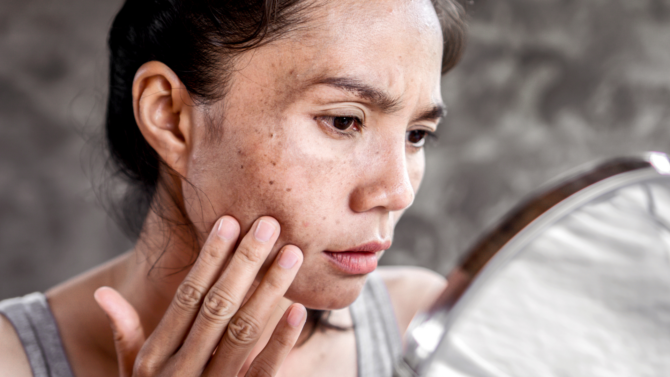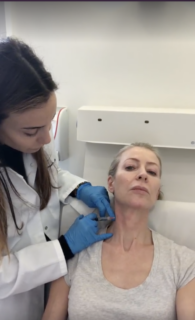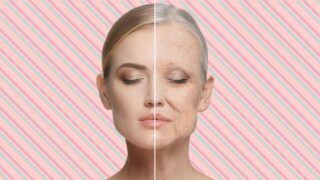Eczema can be really tricky to manage, especially if it’s on your face. In honour of National Eczema Week (12-18th September), I asked top dermatologist and TTG-listed practitioner Dr Stefanie Williams for her best advice on managing facial eczema.
1. Know your eczema
Eczema isn’t one size fits all. So unfortunately, getting to grips with the best approach to facial skincare isn’t as simple as choosing products that say, ‘suitable for eczema’. ‘Facial skincare for eczema sufferers depends very much on which type of eczema the person is suffering with,’ says Dr Stefanie. ‘While atopic eczema skin benefits from lipid-rich emollients to help stabilise the skin’s epidermal barrier function and increase moisture levels in the skin, seborrheic eczema skin on the other hand needs to avoid lipid-rich formulations and should ideally use oil-free skincare.’
The best way to determine which type of eczema you have is with a diagnosis from a dermatologist or your GP, but the basic differences in symptoms are that atopic is associated with dry, flaky, or cracked skin; while seborrheic eczema – linked to oil production – causes skin swelling and greasy scales of skin that often develop into thick plaques.
2. Avoid irritants
It won’t come as a surprise to eczema sufferers that certain irritating ingredients should be avoided. But specifically, Dr Stefanie advises steering clear of ‘fragrance and allergenic plant ingredients such as calendula.’ While some ingredients derived from nature can be beneficial for calming and soothing angry, sensitised skin, don’t assume that natural is best – some plant ingredients and essential oils are among the most well-known irritants for compromised skin.
And if you’re still using active ingredients through eczema flare-ups, stop. ‘Other ingredients to avoid for patients with atopic eczema are potentially irritating ingredients such as AHAs, salicylic acid and retinoids,’ adds Dr Stefanie.
3. Get extra help
‘In addition to over-the-counter skincare, eczema may need a course of prescription creams when the inflammation is flaring up,’ says Dr Stefanie, and she stresses how important it is to keep up with continued use of emollients (for atopic eczema) even when the skin isn’t flaring up, to manage the skin condition.
She also recommends getting under a medical-grade, inflammation-soothing red LED light if you can, like she offers at her clinic: ‘At Eudelo, we offer dermatology-grade facials including calming LED light, specially composed for eczema, which can be a beneficial adjunct,’ she adds.
Join Our Mailing List
This is the best way to stay in the loop with our latest news and updates, including industry titbits and tailored offers.
Related Stories

Concerns
Where To Find The Best Advice From TTG’s Leading Practitioners
Have a burning question about tweakments and/or skincare? Premium spots for The Tweakments Guide Live may...

Concerns
Tone, Sculpt, Reduce: Our Favourite Body Contouring Tweakments
If you are struggling with stubborn fat and sagging skin that doesn’t want to budge even with a healthy...

Concerns
Try These Next-Gen Facials For Your Pre-Christmas Party Prep
From providing an instant skin glow to targeting fine lines and sun damage, the next generation of advanced...

Concerns
How To Treat Your Hyperpigmentation With Our Favourite Treatments
The clocks have gone back and the nights are getting colder – but at least there’s a light at the...







 The Tweakments Chatbot
The Tweakments Chatbot